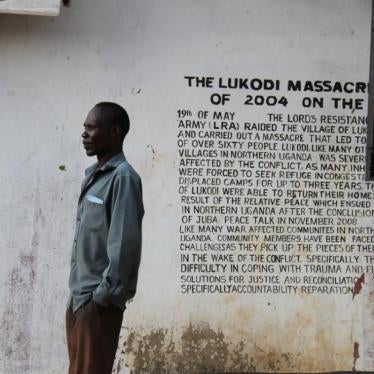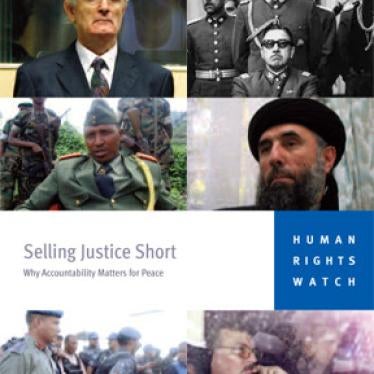(New York) - Human Rights Watch today hailed the 60th ratification of the International Criminal Court (ICC) treaty. At United Nations headquarters in New York, governments supporting the rule of law welcomed the establishment of the first permanent international tribunal to try those accused of genocide, crimes against humanity, and war crimes. The ICC was created because national court systems -- from Guatemala to Sierra Leone to Iraq -- have failed to provide justice to the victims of egregious crimes. The Court will take cases only when the national systems do not work.
"The International Criminal Court is potentially the most important human rights institution created in 50 years. It will be the court where the Saddams, Pol Pots and Pinochets of the future are held to account," said Richard Dicker, Director of the International Justice Program at Human Rights Watch.
The Court will have authority to prosecute the most serious international crimes that are committed after July 1, 2002. The treaty contains numerous safeguards to screen out any politically motivated cases. In addition, the Court will apply the highest procedural protections in international law to the accused. These ensure respect for fair trials.
The 60th ratification has come after less than four years, sooner than even the Court's staunchest advocates expected. Diplomats had previously predicted that it would take eight to ten years to obtain the 60 ratifications.
"The ICC treaty's early entry into force reinforces the new trend started by the Tribunals for Yugoslavia and Rwanda and the Pinochet litigation. The ICC will be the cornerstone of the emerging system of international justice," Dicker said.
The U.S. Government opposes the Court. The Bush administration's hostility comes in the face of strong support for the Court from nearly all of its closest international allies. An announcement by the U.S. administration on its stance towards the Court is expected soon. European states have urged Washington not to oppose the Court.
"It's ironic that the U.S. is opposed to the ICC at a time America is seeking international law enforcement assistance in fighting terrorism," said Dicker. "It would be profoundly short-sighted for the Bush administration to place itself at odds with the many states committed to extending the rule of law to the worst crimes imaginable."
The ICC treaty was adopted in July 1998 at the end of a Diplomatic Conference in Rome by 120 votes to seven. Before the deadline for signature on December 31, 2000, 139 countries had signed the ICC treaty. The first meeting of the Court's governing body, the Assembly of States Parties (ASP), is scheduled for September 3-13, 2002. In order to participate in the first ASP, countries must ratify by June 30, 2002.
Unlike the two existing ad hoc tribunals, the International Criminal Tribunal for Yugoslavia (ICTY) and the International Criminal Tribunal for Rwanda (ICTR), the ICC will be independent from the United Nations and funded by states that join.






